Four Cornerstones
CET’s purpose is to create educational and employment opportunities for our trainees so that they achieve a higher level of self-sufficiency. In an atmosphere of mutual respect and partnership, we assist individuals with overcoming their barriers and reaching their goals and objectives.
We achieve this by providing a professional environment that addresses the need for support services, skill training, and career development.
Brighton Center’s Center for Employment Training (CET) is an innovative, 6 to 9 month short-term career training program that provides comprehensive and holistic occupational, skill-specific training in in-demand careers. CET is fully accredited by the Council on Occupational Education and licensed by Kentucky’s Council on Postsecondary Education. In 2014, Brighton Center’s CET was recognized by The White House as 1 of 30 career training programs that work. Individuals within this accelerated education program are provided with hands-on, self-paced training with contextual learning that simulates an actual work environment. Our trainees receive a debt-free education through grant based funding including Title IV Pell, Kentucky Department of Community Based Services, Kentucky Office of Vocational Rehabilitation, Workforce Innovation and Opportunity Act training dollars, United Way of Greater Cincinnati, Veterans Administration and other private funders. For over 20 years we have “braided” four foundational cornerstone services into the CET program.
Skill Training Instruction
Skill training instruction is based around CET’s high demand skill training. Career pathway(s)/sector(s) with corresponding industry recognized certificates/credentials are offered in the following skill divisions:
| Sector & CET Skill Division | Skill Content | Certification |
| Healthcare - Medical Assisting (MA) | Adult Education & Digital Literacy Fundamentals, Intro to Medical Assisting, Electronic Medical Records, Medical Terminology, Fundamentals of Clinical Medical Assisting, Anatomy and Physiology, Pharmacology and Medication Administration, Clinical Procedure Evaluations, Success Skills, Career Coaching and Development, Supervised Externship. | Occupational Skill Certificate, and the ability to sit for the Registered Medical Assistant (RMA) credential. |
| Healthcare - Health Technology Administration (HTA) | Adult Education & Digital Literacy Fundamentals, Healthcare Legislation, Medical Office Administration, Electronic Medical Records, Medical Terminology, Anatomy and Physiology, Diagnosis Codes, Procedure Codes, Success Skills, Career Coaching and Development. | Occupational Skill Certificate, and the ability to sit for the Certified Billing & Coding Specialist (CBCS), Certified Medical Administrative Assistant (CMAA), and Certified Health Record Specialist (CEHRS) credentials. |
| Business - Human Resources & Payroll Specialist (HRPS) | Adult Education & Digital Literacy Fundamentals, Introduction to HR Operations, Microsoft Office Applications, Compensation and Benefits, Employee Relations, Development, and Retention, HR Law & Regulations, Payroll & Accounting, Record Keeping & Data Entry, Success Skills, Career Coaching and Development. | Occupational Skill Certificate, and the ability to sit for the Associate Professional in Human Resources (aPHR). |
Integrated Adult Education
Integrated adult education and basic skill attainment includes reading comprehension, business writing, math for the workplace, and critical thinking. In contrast to generalized adult basic education (ABE) programs, our contextualized bridge program integrates basic skills (reading, math, English, and digital literacy) with industry-specific skills and terminology, so that learners can gain technical knowledge simultaneously with improving their foundational skills. In many cases, contextualized bridge classes are team-taught by an Adult Basic Education Skill Coach and a technical Skills Instructor. In each skill division, this work is embedded in the curriculum and reinforced through project based instruction. For example, a Medical Assisting trainee will practice math skills while learning the correct titrations for medication injections. Trainees without a GED can dual enroll in skill training and on-site GED instruction with our education partner Campbell County Skills U.
Success Skills
The development of “soft skills” through our success skills environment occurs through a variety of ways. Trainees develop these skills by forming new habits reinforced by the learning environment and presentations. Habits like showing up on-time and getting along with others for example, are developed and reinforced in the skill division. When working on group projects, conflict resolution skills are presented, modeled, and reinforced, and non-productive habits are confronted.
Career Development
Career Coaching provides job readiness skills; advancement and career pathways; wage and benefit services; and retention/job advancement as well as follow-up and re-employment. When a trainee has completed 50% of their competencies, they begin working with a Career Coach. They are provided workshops, one-on-one coaching, and peer-to-peer mentoring.
Underpinning CET is the bundled and holistic array of services reinforced by Brighton Center’s service continuum. On-site at CET we are able to bundle nationally recognized CET with family and work supports and financial coaching. In addition trainees at CET can access Brighton Center’s array of services to meet their need and their family’s needs. Some example of Brighton Center services available includes nationally accredited child development programs, youth programs which are grounded in research-based best practices, recovery services which are integrated into a state wide initiative, and community organizing which ensures neighborhood driven services. This unique in-house service continuum was strategically developed based on the needs of the community, and is available to all CET trainees to ensure that they have the support and resources needed to be successful. Our approach has proven effective with unemployed, underemployed, hard to serve youth transitioning from secondary school, and those seeking re-entry due to their addiction.



